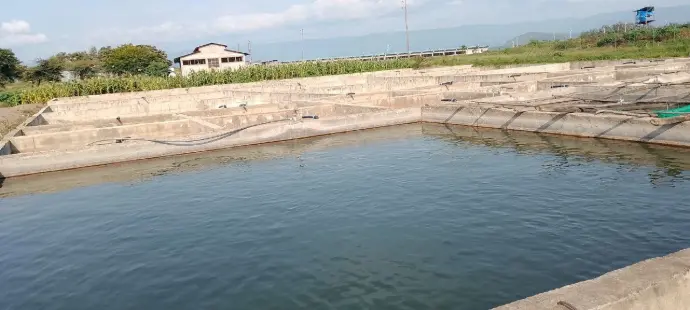Center for Aquaculture Research and Education (CARE)
CARE under the College of Natural and Computational Sciences (CNCS), Hawassa University (HU) was established in 2020.
About the Center
CNCS is one of the two centers in CNCS that provides a platform where scientific research, education, and community service converge to enhance aquaculture development. The model farm serves as a living laboratory for students and researchers, a demonstration site for innovative technologies, and a training hub for farmers and extension workers. Through research, education, technology transfer, and outreach, the Center aims to promote sustainable aquaculture practices that improve fish production, ensure environmental sustainability, and contribute to improved livelihoods and nutritional security. By fostering collaboration with local communities, government agencies, and international partners, the Center aspires to be a hub of excellence in aquaculture research and education while providing practical solutions to emerging challenges in the sector.
Goal
To establish a leading center of excellence in aquaculture research, education, and model farming that enhances knowledge generation, practical skills, and sustainable aquaculture production for food security, income generation, and environmental sustainability.
Objectives
The objective of the center for Aquaculture Research and Education is:
Research and Innovation
- Conduct applied and adaptive research on aquaculture production systems, nutrition, genetics, disease management, and water quality.
- Develop and test innovative, sustainable, and cost-effective aquaculture technologies suitable for local and regional contexts.
Education and Capacity Building
- Provide hands-on training for undergraduate and postgraduate students in aquaculture science and management.
- Offer short-term training, workshops, and demonstrations for smallholder farmers, extension workers, and community groups.
Model Demonstration and Technology Transfer
- Operate a model aquaculture farm to showcase best practices and sustainable production techniques.
- Serve as a demonstration site for integrated aquaculture-agriculture systems.
- Promote the transfer of improved aquaculture technologies to farmers and stakeholders.
Community Engagement & Outreach
- Support smallholder farmers and youth through training, fingerling supply, and extension services.
- Strengthen linkages with local communities to address nutritional challenges and improve livelihoods.
- Raise awareness on the role of aquaculture in food security and poverty reduction.
Collaboration and Partnerships
- Establish collaborative networks with universities, research institutes, government agencies, and private sector actors.
- Facilitate joint research, student exchange, and outreach programs with national and international partners.
Sustainability and Resource Management
- Promote eco-friendly aquaculture practices that conserve biodiversity and water resources.
- Encourage circular economy models, such as aquaponics and integrated farming systems.
- Contribute to policy development and advocacy for sustainable aquaculture development
Available resources and facilities
Currently, the Center has two laboratories equipped with some fundamental laboratory equipment and instruments and recirculation facility to rear fish larvae and fingerlings. Moreover, the Center has one model modern Fish Breeding and Production farm to impart practical field work in the Main Campus of Hawassa University.
Re-circulating Aquaculture system
Re-circulating Aquaculture system (used for both CARE and ASFA)

CARE fish breeding
CARE fish breeding and demonstration site CARE fish breeding and demonstration site

Fish Hatchery Lab.
Fish Hatchery Lab.
